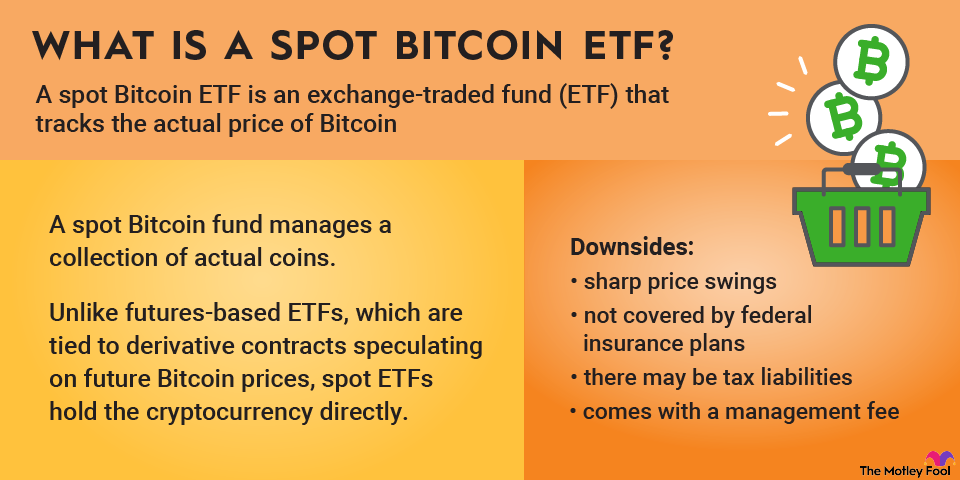Investors in spot Bitcoin ETFs are still subject to several risks and challenges:
- Bitcoin is a volatile cryptocurrency, prone to sharp price swings at the drop of a hat. ETFs striving to reflect these fast-moving prices will experience the same unexpected changes, both up and down.
- Most ETFs are covered by federal insurance plans, shielding investors from various financial risks. That doesn't apply to the spot Bitcoin ETFs yet. The regulatory framework for digital assets is still under development, with no rules in place for managing federal insurance coverage yet.
- The ETFs will stay within a rounding error from the active Bitcoin price, with a couple of caveats. Bitcoin prices will change after market close, at any time on Saturday night, or even on national holidays. Every ETF closes its books at 4 p.m. ET on weekdays, respecting holidays and other days without stock-market action. So, the new ETF class comes as close to the real thing as possible, but owning real Bitcoin still lets you react more quickly to price changes or market news after the closing bell.
- The tax treatment of Bitcoin and Bitcoin ETFs can differ, which may have implications for investors' tax liabilities. Again, digital assets are still new and immature, leaving many tax questions unanswered.
- Every ETF comes with a management fee, compensating the fund manager for running the show. The annual fees range from 0.19% to 1.5%, which may not sound like much, but these expenses will add up in the long term. A 1.5% annual fee will take away 16% of your returns in a decade.
How to invest in a spot Bitcoin ETF
Investing in a spot Bitcoin ETF may be easier than opening a new account to trade actual cryptocurrencies. Still, this investment requires the same due diligence as any other cryptocurrency bet.
Investors should consider the ETF's fees, which can affect returns, the trustworthiness of each fund issuer, and the idea of tying your investable dollars to cryptocurrency prices in the first place. These ETFs simplify the process of investing in Bitcoin, but the underlying asset still carries the volatility and risk inherent to cryptocurrency markets. Potential investors must work out how a spot Bitcoin ETF fits within their overall investment strategy and risk tolerance long before taking the plunge with a real-money investment.




















